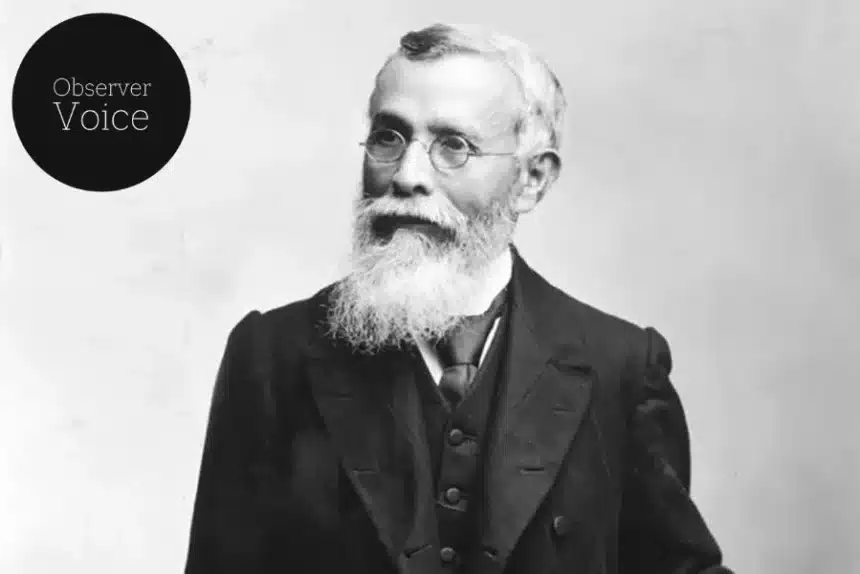Surendranath Banerjee (10 November 1848 – 6 August 1925) was an Indian nationalist leader during British rule.
Early Life
Surendranath Banerjee was born on 10 November 1848, in Kolkata, West Bengal, India. After graduation, in 1868, he went to England with Romesh Chunder Dutt and Behari Lal Gupta to compete in the Indian Civil Service exams. He passed the competitive exam in 1869 but was barred for misrepresenting his age. Banerjee cleared the exam again in 1871 after arguing that his age should be calculated based on the Hindu custom of reckoning it from conception rather than birth. Banerjee also went to University College London. His final exams were in 1871, and he went back to India in August. Banerjee returned to London in 1874 and enrolled at Middle Temple.
Career
Upon returning to India, Banerjea became a professor of English.
He used his teaching profession to inspire Indian students. He was one of India’s most eloquent speakers. His first great contribution to the Indian national cause was to transfer Bengali youth’s energy and interest to national regeneration.
On 26 July 1876, he founded the Indian Association, which was supposed to be the center of an all-India political movement. It was the first time India was seen as a political unit.
In 1879, he bought The Bengalee and edited it for 40 years. When Banerjee was arrested in 1883, protests and hartals broke out across Bengal, and in cities like Agra, Faizabad, Amritsar, Lahore and Pune. He became the first Indian journalist to get jailed.
At its annual conference in Calcutta, the INC had hundreds of delegates from all over India. The Indian National Congress was formed in 1885 in Bombay, and Banerjee merged his organization with it because they had similar objectives. In 1895 he was the Congress President at Poona, and in 1902 at Ahmedabad.
In 1909, Banerjea appealed to Britain to modify the 1905 Bengal partition, reinstitute habeas corpus, and give India a constitution like Canada’s. He was a firm believer in representative government and constitutional progress. “Agitate, agitate, agitate,” he advises Indians, but he opposes the extreme methods advocated by B.G. Tilak and some of the noncooperation tactics that were practiced by Mahatma Gandhi.
He joined the Bengal and imperial legislative councils in 1913 and supported the Montagu-Chelmsford report of 1918, which allowed India to self-govern. In 1921, he was knighted and became minister of local self-government in Bengal. He was attacked by extreme nationalists as a turncoat and defeated in the 1924 dyarchy elections by a Swaraj (independence) candidate, after which he quit and wrote A Nation in Making (1925)
Death
He died on 6 August 1925 in Bengal Presidency, British India.
Read More: 8 November: Lal Krishna Advani an Indian Politician

